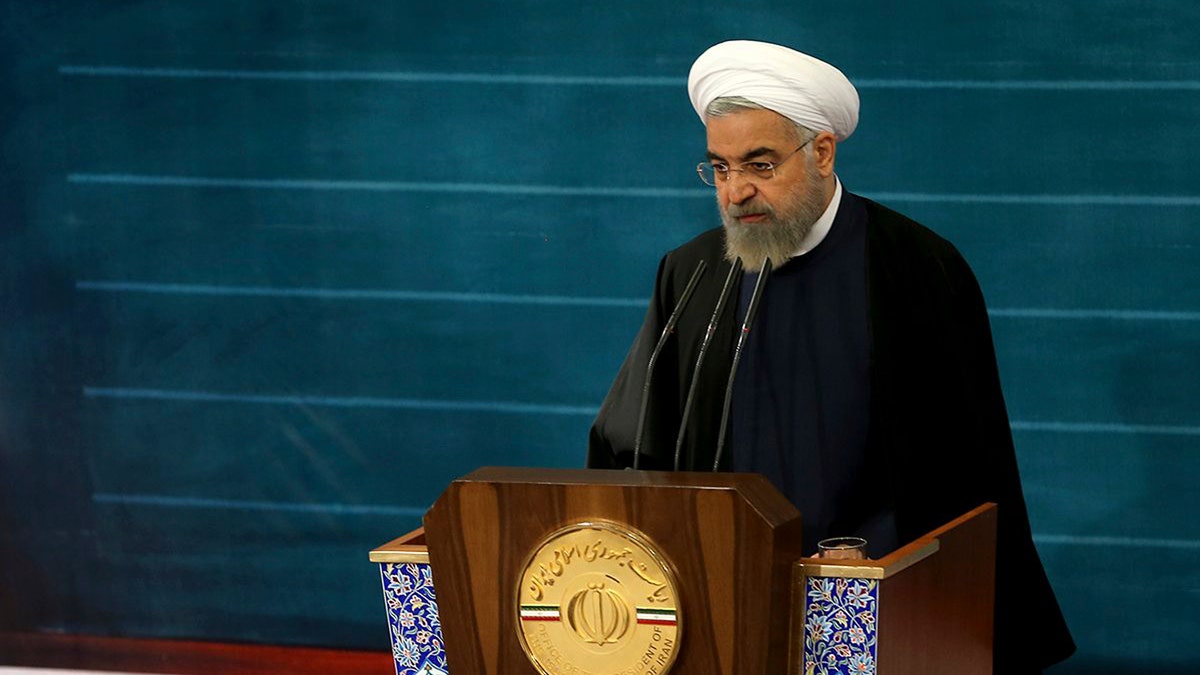
May 4, 2015- Iran's President Hassan Rouhani at the presidency compound in Tehran, Iran. Twice in recent days, Rouhani has made statements rejecting the idea of police officers enforcing morality rules, staking a clear position against hard-liners who largely oppose his outreach to the West. (AP)
TEHRAN, Iran – Ahead of summer in Iran, when hard-liners want to want women in the Islamic Republic to be veiled and covered to their standards, the country's president is taking a stand against police enforcing morality rules.
By doing so, President Hassan Rouhani is staking a clear position against hard-liners who largely oppose his outreach to the West amid negotiations with world powers over the country's contested nuclear program.
Rouhani has made statements twice in recent days opposing the idea, including Monday in a speech broadcast on Iranian state television. He said police are responsible to enforce the law, not different interpretations of Islam.
"Police that possess pistols and handcuffs have been created for enforcement," Rouhani said. "We can't say you are the seminary and can interpret (Islam). Everybody should do his job."
Last week, Ayatollah Mohammad Yazdi, the head of Iran's powerful Assembly of Experts, said the country's executive branch must enforce Islam. Otherwise, he said its moderate government will lose its legitimacy in Iran, a theocracy with Ayatollah Ali Khamenei as its supreme leader.
"All individuals, including the police, are required to enforce rules of Islam," said Ayatollah Nasser Makarem Shirazi, another prominent cleric in the holy Shiite city of Qom. "Promoting virtue and preventing vice, according to the Koran, is the responsibility of every individual. Such remarks weaken the moral of the police."
Rouhani has encouraged tolerance in social issues since becoming president, including over women who are not considered by hard-liners to be sufficiently veiled. Many young women walk in the streets with tight shirts or with colorful, loose headscarf that allow their hair to fly out, angering conservatives.
But despite Rouhani's overtures, clear limits remain in Iran. Last year, young Iranian men and unveiled women who shot a video of themselves dancing together to Pharrell Williams' "Happy" were arrested for allegedly breeching Islamic norms.
